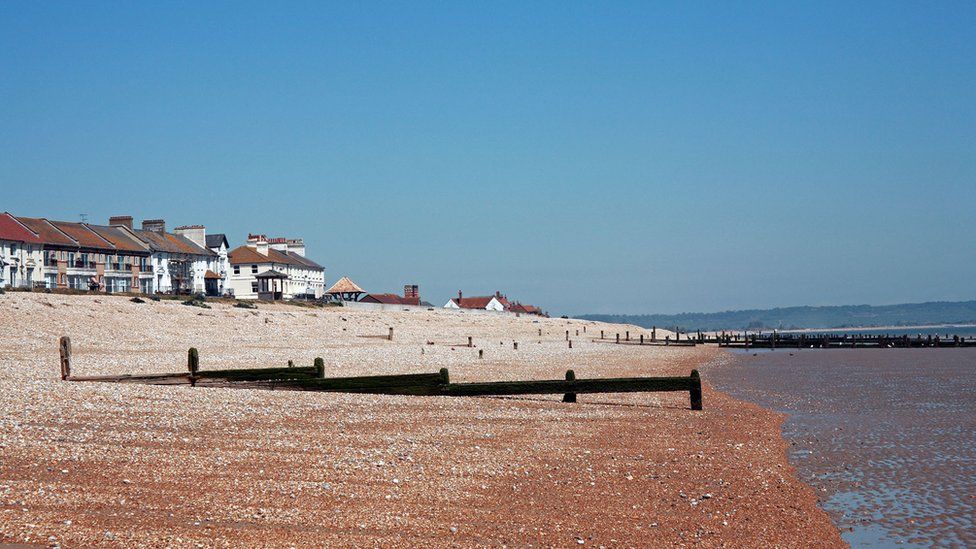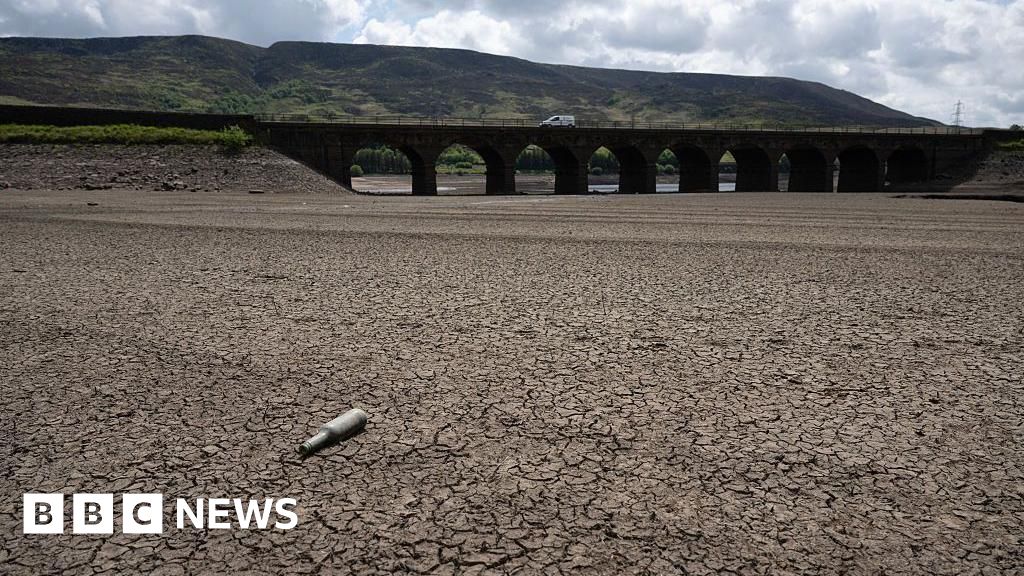ARTICLE AD BOX
 Image source, Alamy
Image source, Alamy
Littlestone beach in Kent was given "poor" status
By Jonah Fisher
BBC Environment Correspondent
The number of English bathing sites rated as unfit to swim has risen to its highest level since a new rating system was introduced in 2015.
A total of 423 popular swimming sites, mostly beaches, were tested by the Environment Agency (EA) this summer for types of pollution that are known to be a risk to bathers' health.
Eighteen were "poor", the highest since the new rating system was brought in.
The EA said the wet summer could have contributed to the results.
This is because an increase in rain means more water running off roads and fields, which can bring more pollution into waterways.
A total of 281 bathing sites were rated "excellent" by the UK government's environment watchdog, which is 21 fewer than last year.
A similar number of bathing sites reached minimum standards - "sufficient" or better - when compared to 2015, but in each of the last three years the number of bathing sites rated as "poor" has gone up.
Responding to the data, Water Minister Robbie Moore said "our bathing waters have improved significantly in recent years" and highlighted government plans for more investment and stronger regulation of water companies.
Asked to clarify the minister's comments given the increase in "poor" ratings, an EA spokesperson said the reference to "recent years" was a comparison to water quality more than a decade ago.
Sewage discharges
The fall in the number of bathing sites meeting minimum standards comes amid growing awareness of the amount of untreated sewage being discharged by water companies.
"You know things are bad when even our dodgy testing system can't cover up the miserable state of water quality in England," says Giles Bristow, the head of campaign group Surfers Against Sewage.
"With a 50% rise in the number of bathing waters failing to meet minimum standards, and a significant drop in those rated excellent, it's clear that government and the regulator have been asleep at the wheel, all whilst water companies continue to profit from the pollution of our rivers and seas."
It is legal for water companies to discharge sewage after heavy rainfall, to stop the system being overwhelmed, but earlier this year a BBC investigation uncovered evidence that suggested it was also happening during dry weather.
Alan Lovell, the chair of the Environment Agency, said: "The slight fall in standards this year shows we must go further to drive improvements and that this takes time and investment.
"While overall bathing water quality has improved over the last decade due to targeted investment, robust regulation from the Environment Agency and work carried out by partners, these results show there is significant work still to do to ensure the quality of our bathing waters is increasing every year."
Rivers in 'very fragile state'
Almost all the designated bathing sites are on the coast, but three are rivers. All three have been given "poor" status, meaning people are being advised not to swim there.
James Wallace, chief executive of the River Action campaign group, said: "Sadly, that tells its own story, that the UK's rivers are in a very fragile state.
"Today only 14% of the UK's rivers are considered healthy. Many others like the iconic River Wye are so polluted they are at risk of ecocide."
The River Wharfe was the first river in the UK to be given bathing water status, at Ilkley in Yorkshire, but its water quality has now been rated as "poor"
The government is under mounting pressure to show it is taking concerns about the impact of discharges of sewage and agricultural run-off seriously.
"Our Plan for Water is delivering more investment, stronger regulation, and tougher enforcement to clean up our waterways and continue to improve our bathing waters," says Water Minister Mr Moore.
"We have also set stringent targets for water companies to reduce sewage spills from storm overflows which frontloads action at designated bathing waters to make the biggest difference to these sites as quickly as possible."

 1 year ago
43
1 year ago
43








 English (US) ·
English (US) ·